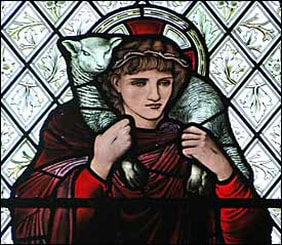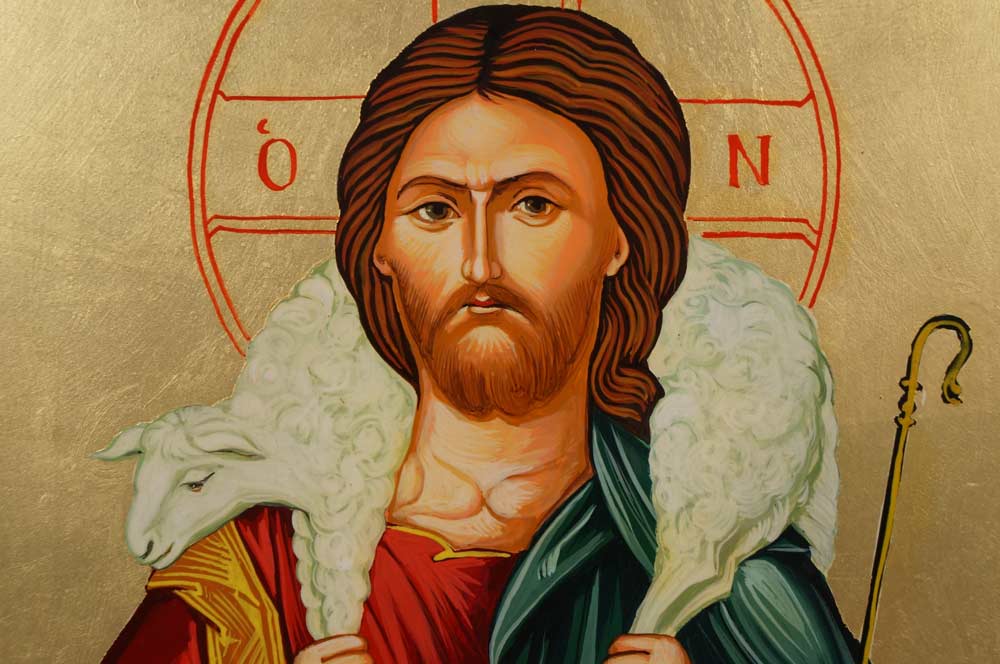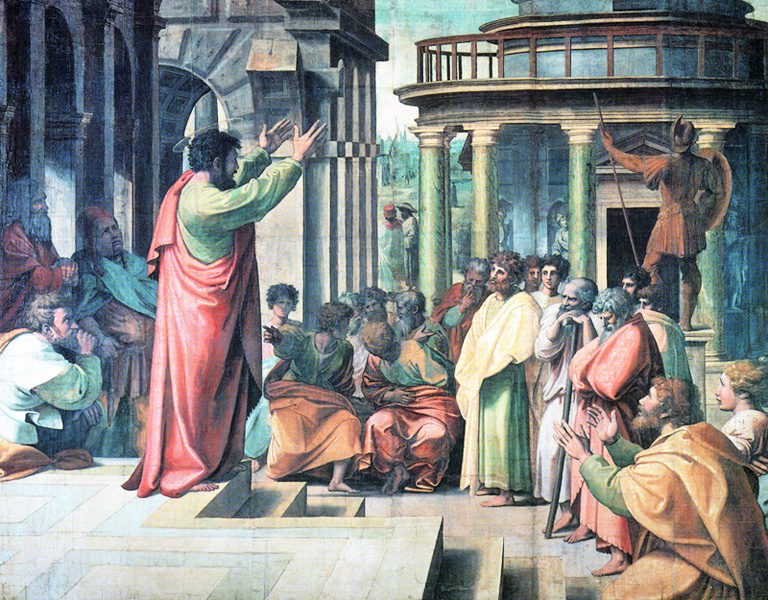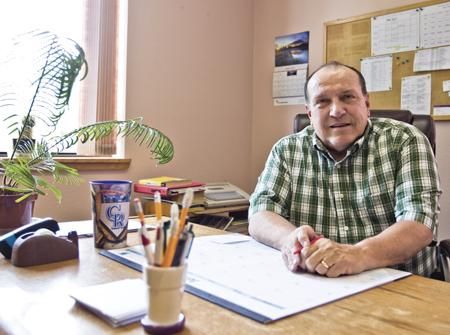 Edward Burne-Jones, Good Shepherd stained glass window (1895), Harris Manchester Edward Burne-Jones, Good Shepherd stained glass window (1895), Harris Manchester My internship supervisor, the late Rev. Ralph Rohr, had a casual conversation with me one day in the church office that really got my wheels turning. Discussing the future of the church, he shared a reflection from his career that has been illuminating for me ever since. He said, “You know, when I graduated seminary in the ‘60’s, they told us to go out to preach the Gospel, administer the sacraments, and visit the sick and homebound. That was mostly what was expected of us. Now, things are so different. I wouldn’t want to be in your shoes!” My friend, Ralph, understood that the church he was taught to pastor is the church of the past, now struggling into the church of the future. The church that he was sent out to lead was one that was ready and waiting; full, vibrant and viable. The church of his day was full of families with multiple generations, bursting with folks who worked in a variety of different occupations, and was definitely on the up and up. The church of his day just worked. One could post the times of the service and expect people to show up on their own. The church did not have to push very hard to get people in the pews because they willingly came without much extra marketing or prodding. Pastors and church councils could just worry about taking care of their members without thinking much about those outside the walls of the buildings they managed. The Shepherd Pastor I have been contemplating my conversation with Ralph a lot these past few years and come to realize that he was expected to be a shepherd of the church. He was taught to go out and care for congregational flocks by preaching and teaching the Gospel of Jesus Christ, sealing souls in the kingdom of God through baptisms, presiding over the sacred table at Holy Communion, and caring for members in their time of need. As shepherds standing in for our Good Shepherd, Jesus Christ, he was raised up to guard the flocks to which he was called, fending off wolves of theological misconception while growing his flocks little by little along the way. It is a good and holy thing to be a shepherd. Indeed, to be a shepherd, especially as a pastor and church leader, is to be Christ-like. Jesus confidently proclaimed in the book of John, “I am the good shepherd. The good shepherd lays down his life for the sheep” (John 10:11, NRSV). It is a holy calling to be a leader who cares for church members seeking spiritual nourishment and protection. The image of pastor as shepherd is so enticing that there are many days and weeks when I wish I could be one! To be a shepherd, though, one requires a flock. One cannot care for sheep if there are no sheep to care for, and one must have enough sheep in a flock for one person to devote her or his time to solely caring for them. For pastors, this means that if we are to continue to serve as shepherds, spiritual leaders who just focus on caring for the people in our pews, then we need people to continue to remain in the pews as they used to. However, in most places in America, things are not like they once were. There are stark differences with the way things used to be. To see these differences one need look no farther than at who still comes to church on Sundays – or, more to the point, who does not come to church on Sundays. The Apostle Pastor On the other hand, the early apostles had no such flocks. There were no congregations which came to be without the apostles’ help in the years immediately following Jesus’ death and resurrection. There were no “first-call” communities that they could go to and get paid according to church guidelines. There were no urban cathedrals or country parishes. Sure, there were synagogues which got behind the Jesus movement, but more of these were divided by the upstart Christians than united behind their movement. Jesus did not spend his time setting up churches and congregations, but instead focused all of his time making disciples who then were entrusted with apostleship in his name after he had ascended into heaven (Acts 1:8). In the early church, the disciples did not go out as shepherds to tend communities that already existed; they were sent to spread the Good News to those who had never heard it. Much as we clergy may resist it, the time of pastors heading out into the ministry as shepherds is coming to an end - we are required to serve as apostles once again. Now, like many times in the past, the dynamic relationship that people have with the church and Christianity has led Christians away from encountering the Gospel in community. If we pastors are to bring the Good News to them, we must be sent out into the world once again in order to preach to those out of touch with the Gospel. The time of focusing on our flocks and hoping they will grow on their own is going out to pasture (so to speak). Many days, I wish that I could just be a shepherd. I wish that all I had to worry about were my members, their children and their parents. I wish that I could just post a Sunday School schedule and people would bring their children and help teach the classes. I wish that I could just say when Confirmation was going to be and youth would line up to endeavor on their rite of passage into Christian adulthood. I wish that I did not have to worry about the financial viability of my call a mere five or ten years down the road. I wish that we would have pews so full of businessmen, contractors, farmers, accountants, bankers, doctors and nurses, so that I would not have to worry about taking a leadership role in financial planning, church building projects, or other needs in our community. Many days I long for the role of shepherd that began diminishing long ago. But, I know that if we are faithfully discerning our calls these days, we will recognize that the needs of our time require apostles more than shepherds. People in the hospital need pastors whom they have never met to come and proclaim how Christ is our great Physician. People in the workplace need ones sent among them to share how our peace and security does not come from our paychecks, but from the abundance of our God who loves us. Teachers and school administrators still need to be reassured that the Kingdom of Heaven belongs to the young students who test their patience daily. The farmer and the rancher need to hear proclaimed that the soil in which they struggle is a gift from God, especially when it does not produce the abundant life it once did. Pastors these days are called to be shepherds to congregations in a time that demands a whole lot of apostleship. The expectations of ministers these days are that we serve like shepherding pastors of generations past and be moving out and about in the world in new and innovative ways. The challenges of ministry are now as demanding as ever, even though many of our congregations are smaller than they used to be. In fact, the challenges of ministry are as demanding as ever precisely because congregations are smaller than they used to be. May our Savior shepherd us pastors as we work to become apostles in the places where we have been sent. God knows, we can use all the help we can get! In Christ, Rev. Seth Nelson AuthorRev. Seth Nelson is the author of The Church Unknown: Reflections of a Millennial Pastor. He serves as a pastor in Ronan, Montana, where he lives with his wife and two children.
2 Comments
|
AuthorRev. Seth Nelson, author of The Church Unknown: Reflections of a Millennial Pastor, writes this blog. The blog focuses on the future of the church as well as how God loves and cares for us in the present. He is a pastor in Ronan, Montana. Categories
All
Archives
January 2023
|




 RSS Feed
RSS Feed
